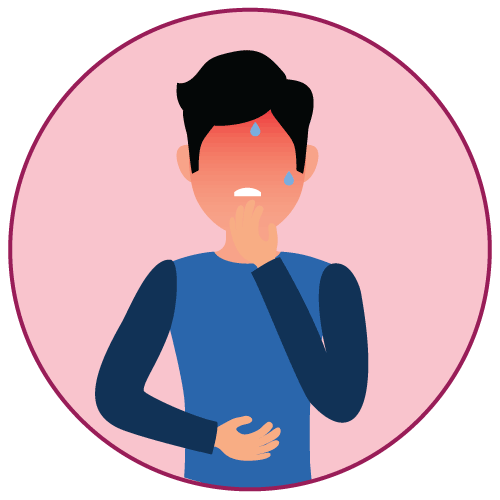| Name | Hot Flash |

Hot Flash
A hot flash is a sudden feeling of intense warmth and sweating that is commonly experienced by women during menopause. The sudden increase in body temperature and sweating can last from several seconds to several minutes and can be accompanied by other symptoms such as rapid heartbeat, chills, headache, and dizziness.
Hot flashes are believed to be caused by hormonal changes during menopause. As the levels of estrogen and other hormones decline, the hypothalamus, which controls the body’s internal temperature, can become more sensitive to changes in temperature, leading to hot flashes.
While hot flashes are a common symptom of menopause, not all women experience them. Women who do experience hot flashes can have them several times a day or only a few times a week, and they can last anywhere from several weeks to several years.
Treatments for hot flashes include lifestyle changes such as avoiding triggers such as spicy food, caffeine, alcohol, and stress. Hormonal therapy, such as estrogen replacement therapy, is also a commonly used treatment for hot flashes. Other options include selective serotonin reuptake inhibitors (SSRIs), gabapentin, and clonidine.
It is important to speak with a healthcare provider to determine the best course of treatment, as some treatments may not be suitable for all women and can have side effects.
Note: This is a general description. Please take professional health advice.
 Bangla
Bangla English
English